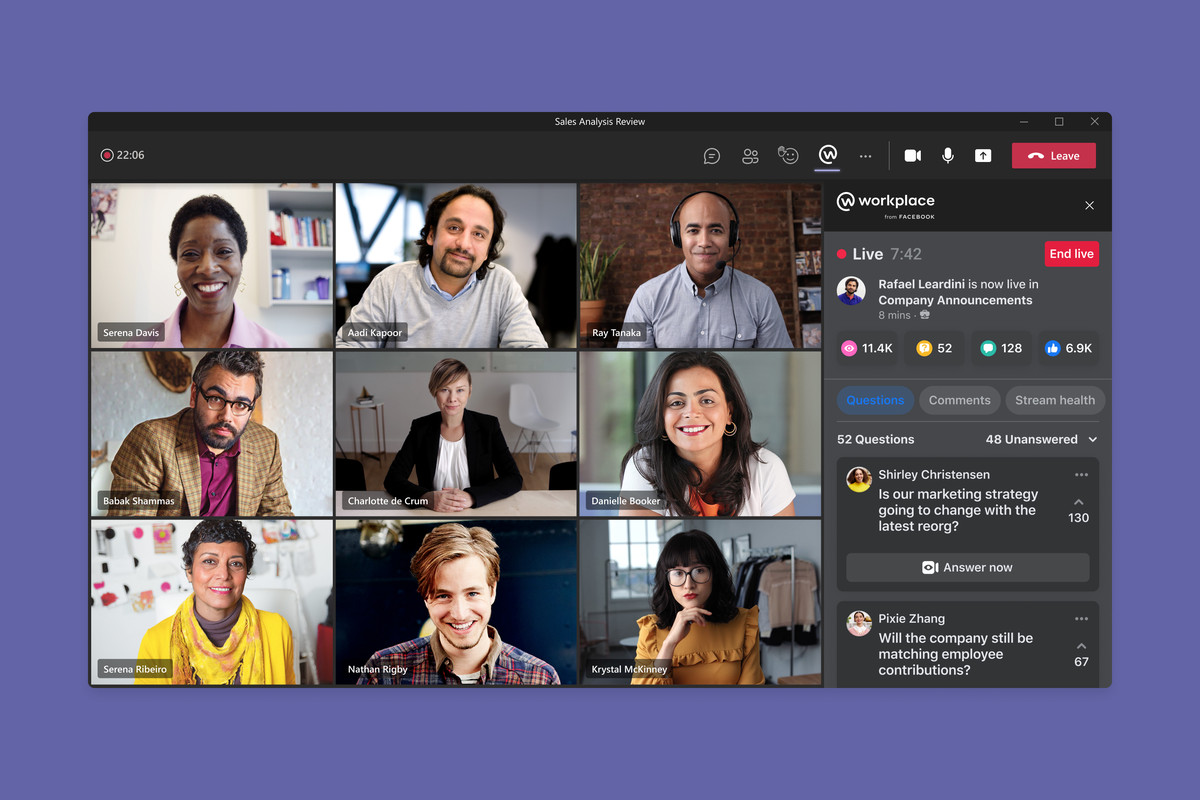Microsoft is partnering with Meta, the company formerly known as Facebook, to integrate Microsoft Teams into Zuckerberg’s Workplace platform. Facebook Workplace, or Workplace by Meta as it’s now been rebranded, will soon integrate Microsoft Teams to livestream video into Workplace groups.
The Microsoft Teams integration into Workplace will also allow employees using Teams or Workplace to view, comment, and react to meetings in real time without having to switch between apps.
:no_upscale()/cdn.vox-cdn.com/uploads/chorus_asset/file/23001970/Meeting_Live_Broadcast.png)
Microsoft is also integrating Workplace into Teams, which will enable Teams users to access Workplace content through an app within Teams. The app will be pinned to the Teams navigation bar and will include a homepage of Workplace content. Microsoft Teams admins will also be able to mark content as important to showcase it in the Workplace app.
“One thing I’ve learned … there’s not going to be a one and only communications tool on the planet,” says Jeff Teper, head of Microsoft 365 collaboration. “People are going to choose a number of tools, so I think it’s on us as responsible vendors to make sure they can integrate and interoperate.”
This Workplace by Meta and Microsoft Teams integration is the latest in a broader partnership between the two companies. Workplace can already integrate into SharePoint, OneDrive, and Microsoft’s Office 365 suite. Meta has also integrated Workplace into Microsoft’s Azure Active Directory, and it quickly became one of the top 10 apps for the service.
:no_upscale()/cdn.vox-cdn.com/uploads/chorus_asset/file/23001973/Stylized_Live_Broadcast.png)
Microsoft Teams is also arriving on the Meta Portal (Facebook Portal) device in December, allowing people to use video calling in Teams. This latest Teams and Workplace integration goes live today, with businesses able to share Workplace content to Teams. The livestreaming of Teams meetings into Workplace will be available in early 2022.
Microsoft and Meta are also setting the stage to compete for the enterprise metaverse in the years ahead. Both companies unveiled similar visions for virtual spaces and meetings recently, but given these continued partnerships, we may well see the pair collaborate even further on virtual reality and metaverse efforts in the future.
